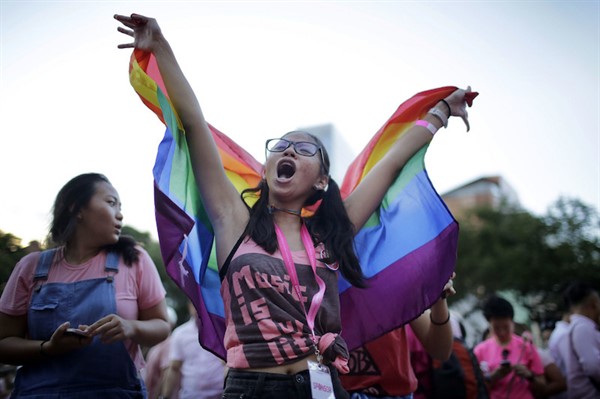There’s only one place in all of Singapore where citizens can organize protests and demonstrations without prior police permission—Speakers’ Corner, in Hong Lim Park. In June 2019, at the last in-person Pink Dot rally before the coronavirus pandemic moved most activism online, it was packed. For years, Pink Dot, an annual gathering held at the park to demand LGBT rights in Singapore, has consistently attracted 10,000-20,000 people. But what stood out most about the crowd that day in 2019 was how young so many of the attendees were: teenagers and young adults waving Pride flags and having picnics with their friends.
For older Singaporeans, Pink Dot, which started in 2009, was a milestone for LGBT activism in a country where sex between men is still illegal. To a younger generation, though, LGBT visibility is much more normalized, and it’s common to find social media posts, public events and blog posts discussing systemic discrimination, transphobia and inclusivity.
This progressive bent isn’t confined to LGBT issues. Many younger Singaporeans are engaging in a wide range of social justice causes, eager to talk about topics like racism, sexual harassment and inequality, which are seen as “sensitive” and usually avoided by their elders.

